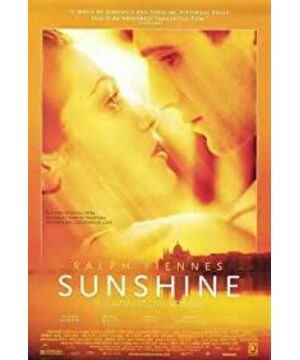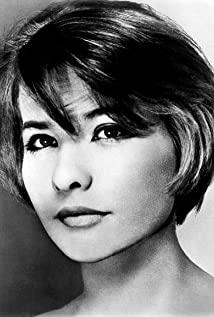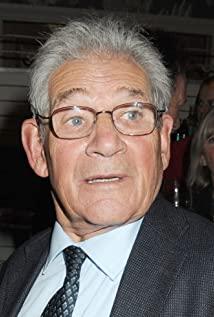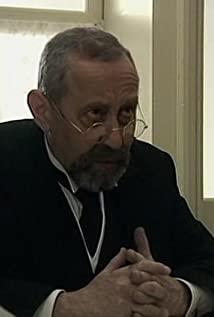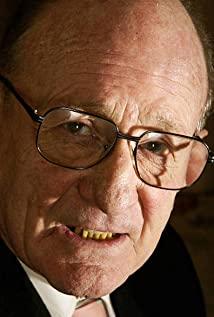Emmannuel's father died of a steam explosion, leaving only a pocket watch and a secret recipe for sunshine, a medicinal wine in the ruins.
Emmannuel, who had gone out to work at the age of 12, worked in a winery. At the age of 25, he established his own brewing company, named after his father's secret recipe-sunshine. Soon Emmannuel's wife gave birth to two sons-Gustave and Ignatz, and adopted a niece-Valerie. As an adult, Ignatz studied law, while his younger brother Gustave chose to practice medicine. The great-grandfather was not worried about no one in the family inheriting his father's business and taking over the winery. He was proud of the ideals of the next generation.
Ignatz was admitted and soon became a judge. Father Emmannuel gave him the pocket watch found in the ruins at the celebration banquet, reminding Ignatz not to forget who he is when trying others. Ignatz was promoted to the chief judge of the Central Court. After obtaining the consent of his parents, Gustave and Valerie changed the surname to Sors with Ignatz. This Latin spelling is the same as the Hungarian spelling, which means mission, loyalty, and more Hungarian. word. Ignatz gradually became snobbish and sleek, and separated from his wife Valerie and his brother Gustave, who joined the Socialist Party to rebel against the government.
Ignatz's two sons, Josefa and Adam, were born one after another. Ignatz was proud of his officialdom. Not only did he join the parliament, he also became the chief judge and was sent to Vienna to participate in the revolution for four years until his loyal empire collapsed. Valerie became unbearable for Ignatz, who became more and more indifferent due to the war, and the two divorced.
When the Communist Party came to power in 1919, Ignatz was placed under house arrest on charges of dictatorship. Valerie went home immediately and was allowed to see Ignatz once a day. Ignatz, whose health was deteriorating, was forced to retire because he refused to join the Communist Party. Gustave was sent to France to participate in the revolution. Ignatz died angrily.
At school, Adam was ridiculed because he was a Jew, and his brother Josefa took him into the fencing team. When he grew up, Adam became the best fencer in the country. The official club intentionally invited Adam, but Adam concealed his Jewish identity and reformed with him. Adam converted to Catholicism and met his future wife Hannah at the church. Their child Ivan was born in the second year. Adam led the fencing team to win the 1936 Olympic team championship and became a national hero.
As the war spread in World War II, the Germans occupied Hungary and changed the fate of the Adam family. Valerie and his daughter-in-law Hannah moved to the Jewish quarter. They were transferred shortly afterwards. Valerie escaped to a friend's house and survived. Hannah was killed on the way. Adam and his son Ivan were sent to a concentration camp, and Adam was frozen to death. And his brother Josefa's family also died under the gun of the Hungarian Party.
Soon the Russian army entered Budapest and defeated the Nazi Party, and World War II ended. The elderly Gustave, Valerie, and Ivan, who survived by chance, met again in the old house. On the advice of his uncle Gustave, Ivan became a police officer, eradicated the Nazis, and was soon promoted to major. In 1956, the revolution broke out again, and the people demanded the overthrow of the Soviet government. Ivan was dissatisfied with the unjust, false and wrong cases made by the government and joined the revolution. Following the failure of the revolution, Ivan was sentenced to five years in prison. Three years later, Ivan was released, but his ancestral pocket watch was lost in the prison depository.
Grandmother Valerie wanted to help Valerie, who was not working at home, find something to do. She planned to find the long-lost secret recipe of sunshine, but the secret recipe was not found, and Valerie passed away.
At the end Ivan changed his surname back to Sonnenschein.
The film adopts the simplest method of presentation to show the audience the fate of three generations of the family, without direct reference to the cruelty of politics, nor does it portray social unrest on a large scale. In 181 minutes, it showed the insignificance of the individual in the historical turning point.
Unfortunately, the three generations of the Sonnenschein family have experienced three social changes: monarchy, fascism, and communism. Perhaps they felt more heart-wrenching as Jews, but grandmother Valerie revealed the true meaning of life. She is the only person in the Sonnenschein family who knows how to breathe freely. In Ivan's words, the secret recipe of sunshine is not lost, but sealed by grandmother. For the sake of vanity, grandfather Ignatz forgot who he was; his father Adam, in order to win the approval of others, not only betrayed his faith; Ivan was also blinded by the fire of vengeance. Sunshine is not only the secret recipe for the Sonnenschein family to make a fortune, but also the blessing left by the ancestors to future generations, but this blessing is obscured and obscured by the dust of history. After 150 years of forgetfulness, as Ivan changed his surname Sors back to Sonnenschein, the secret recipe of sunshine is gone, but freedom is back.
So I translated the name of the film into "Sunshine Secret". It's not about love, not about history, but about the secrets of existence and how to exist.
View more about Sunshine reviews


